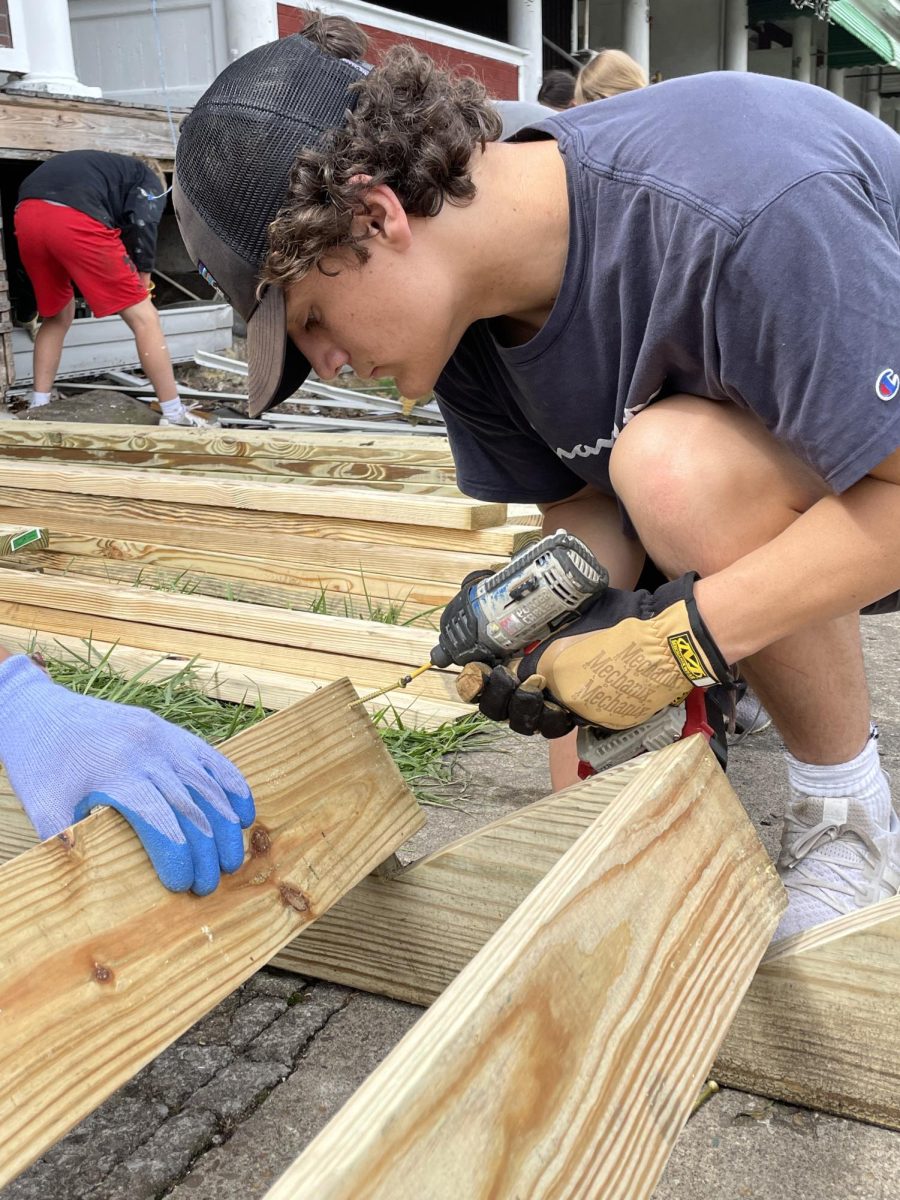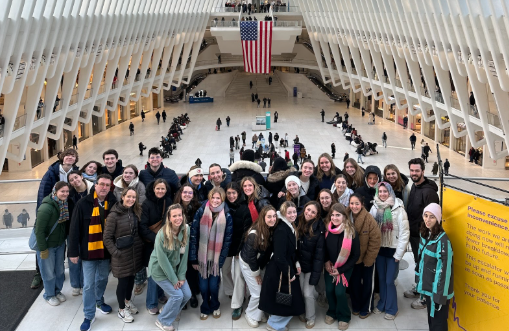Men and women for others. That is the motto of Loyola Academy. Given its prominence, students and faculty alike should strive for that idea before their time at Loyola is done.
An incredibly common part of Loyola Academy culture is the service. Through service programs such as Arrupe, ISL, and Summer Service, Loyola Academy’s Catholic and Jesuit values stick out to those in the community.
Another aspect of service which sticks out in the catholic education community regarding Loyola however, is that service is not required. In a school in which service is so popular, and their motto is Men and Women for others, it seems out of place for it to be one of the only catholic and Jesuit high schools to not require service. While there are varying opinions, the question of if service should be required at Loyola has been talked about in meeting with students, teachers, and administrators alike.
“I believe that our thinking about not requiring service in the past has been that we instill the concept that our faith is calling upon us, that call of service, our Ignatian values and traditions, and through that education we are compelling students from their own discernment to do service and be women and men for others,” head of Ignatian Service Learning and Engagement Ariana Kelly said. “Our faith calls for us to be present and care for our brothers and sisters.”
This concept of serving others is extremely understood by Mrs. Kelly, whose four children also attended Loyola. The student body at Loyola seems to understand the message that the Jesuit education is attempting to preach as well.
“It just goes to show the type of people we have at Loyola, they want to do it, they don’t care if it’s required or not,” senior James Roche said. Roche began to better recognize his call to serve after Kairos, compelling him to partake in a week-long Summer Service trip to West Virginia.
“I learned to appreciate what I have because I have helped people who have nothing,” James said.
“Wait, are service hours required here?” senior Ben Keenan asked. This is a fair question, as although service is engrained in Loyola, the potential lack of requirements can dilute its importance.
“I have always seen service as an activity we just do here at Loyola, no complaining, just being able to say yes,” Keenan said.
This further begins to beg the question of should service be required at Loyola Academy. There are obviously varying opinions on this topic, but there seems to be a similar understanding to those who have served before.
“I think when they’re not required it’s more like ‘Oh I’m doing something great, I’m happy to do this, and I can’t wait to serve the community and do something better,’ so I think making them required could actually shine a negative light on them, when so many people see it as a good thing,” Roche said.
This is an excellent point too, as one of the last things high school students want is to be told what to do.
“I do think it is important to have an experience with service so that the rest of the education then compels them,” said Mrs. Kelly. She has seen the positive effects service has not only on the communities aided, but the community of Loyola, which is yet another reason she promotes service so much.
Also of concern is how there will soon be ISL (Ignatian Service Learning) classes that are going to be required in the curriculum. This is a way to align the teachings of Loyola with the real world it sends its students out in. While this service is part of a class, and the year it is implemented is still not all apparent, it was news nonetheless.
Loyola’s culture promotes calling students to serve willingly. The choice not to mandate service raises the question of if voluntary involvement makes service more genuine, and to what extent does being genuine in service matter in comparison to just doing it?
While opinions vary on whether making service obligatory adds or detracts from its essence, Loyola’s enduring message remains—a steadfast call to contribute to the world with genuine sincerity.











